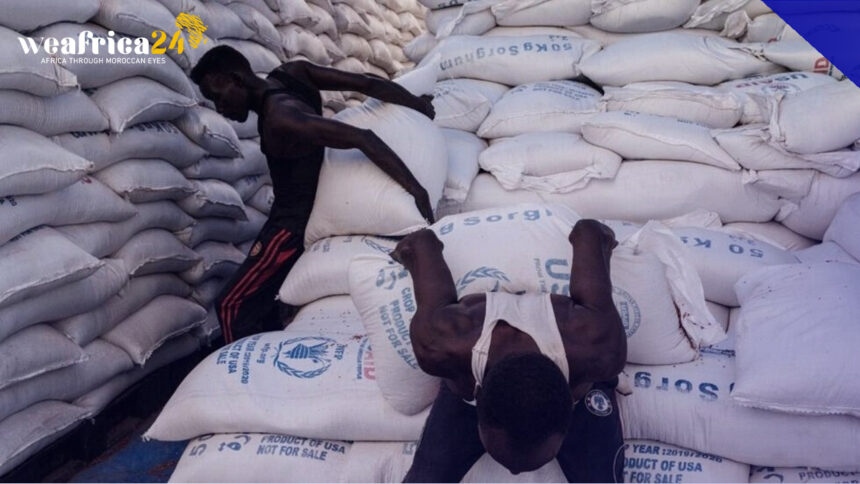The World Food Programme (WFP) has been compelled to halt its humanitarian activities in the city of Wad Madani, the capital of the Gezira State, to safeguard the security of its personnel. This decision comes in the wake of recent clashes between the Rapid Support Forces (RSF) led by General Hemetti and the army led by General Al-Burhane.
WFP’s suspension of humanitarian operations extends beyond Wad Madani, encompassing other localities in the Gezira State. In this agricultural region, the conflict poses a significant threat to the entire cereal production.
“There is widespread panic among the population of the state. Everyone wants to flee. Farmers no longer have access to their farms. Gezira State is considered the breadbasket of Sudan, producing enough wheat for 6 million people each year,” observes Karim Abdelmoneim, Emergency Operations Coordinator for the World Food Programme in the country.
Half a Million Displaced
The ongoing bloody conflict between the Sudanese army and the paramilitary RSF in Khartoum for the past eight months had previously driven half a million people to seek refuge further south, in this agricultural state that was, until recently, spared from violence. However, recently, the paramilitaries, who control the majority of the capital, have advanced along the highway connecting the capital to Wad Madani, seizing village after village and instilling terror among residents.
On December 15, they launched an attack on Wad Madani, forcing over 300,000 people to flee again, both within the Al-Jazira State and towards the neighboring states of Sennar and Gedaref, according to the UN. Since then, the paramilitaries have continued their relentless southward descent. Witnesses reported on Saturday that they were spotted “15 kilometers north of Sennar,” 140 kilometers south of Wad Madani, as per AFP.
“Nearly 18 million people in Sudan, out of a total population of 46 million in the country, have already been identified as experiencing food insecurity in recent months. If the fighting does not cease in the first quarter of next year, which is the planting season for farmers, the situation will become even more dire,” warns Karim Abdelmoneim. “This period is also the sorghum harvesting season, which is a crucial resource in Sudan. If this harvest cannot continue, then people will lose a significant amount of food. The entire agricultural production is at risk if the fighting persists.”







